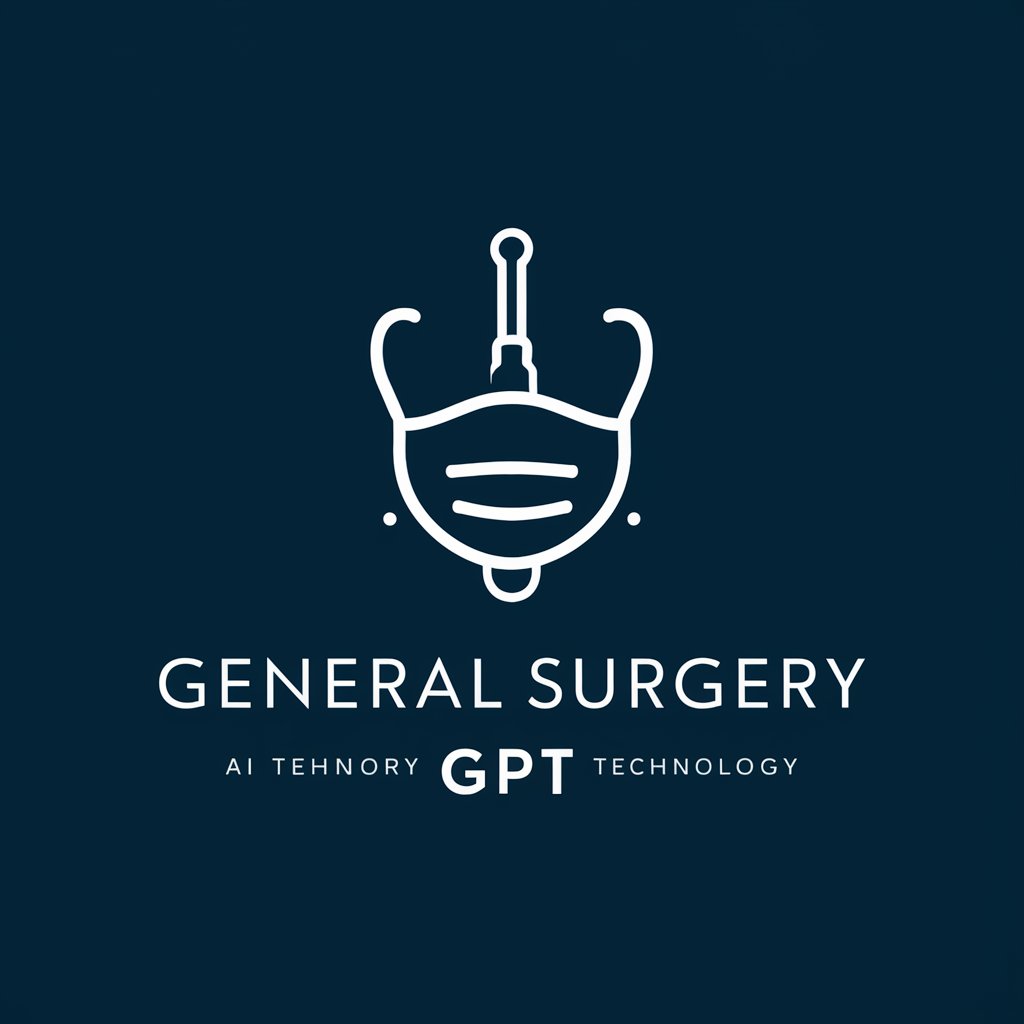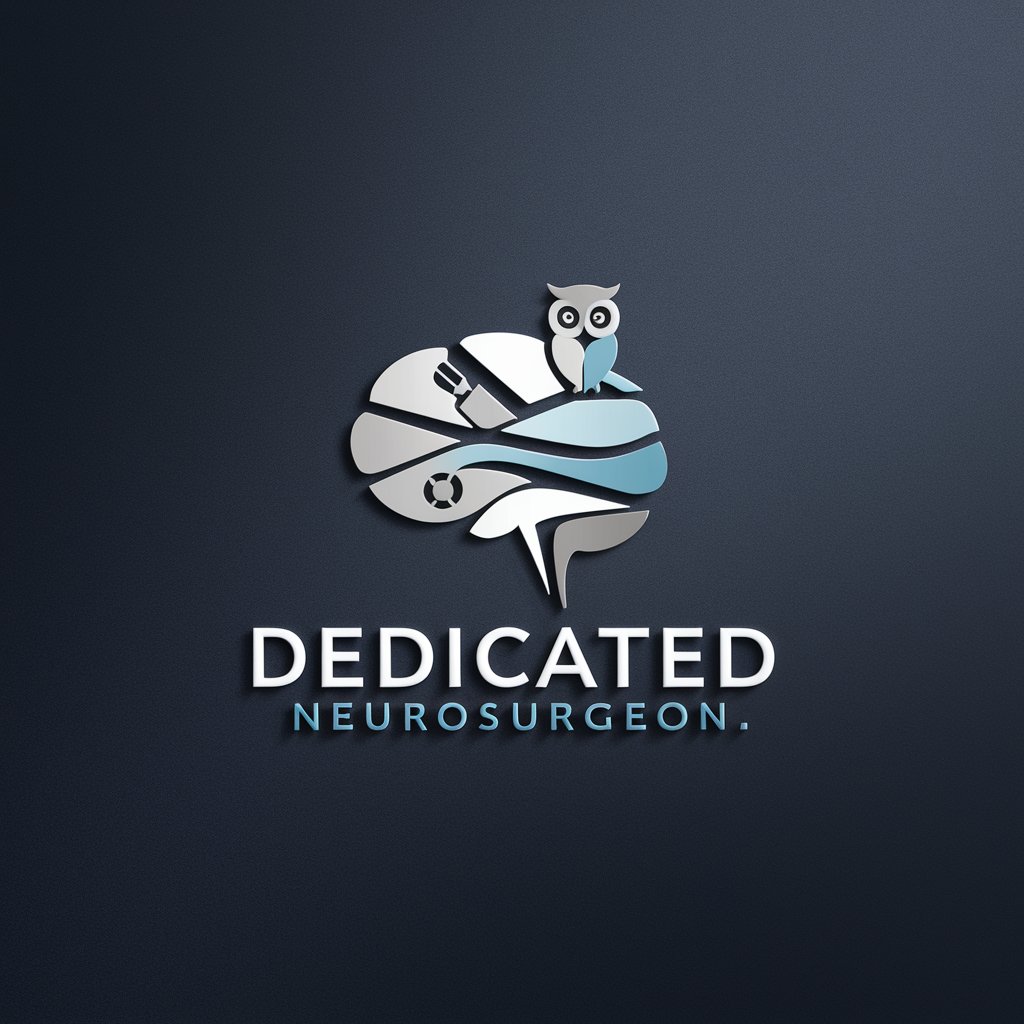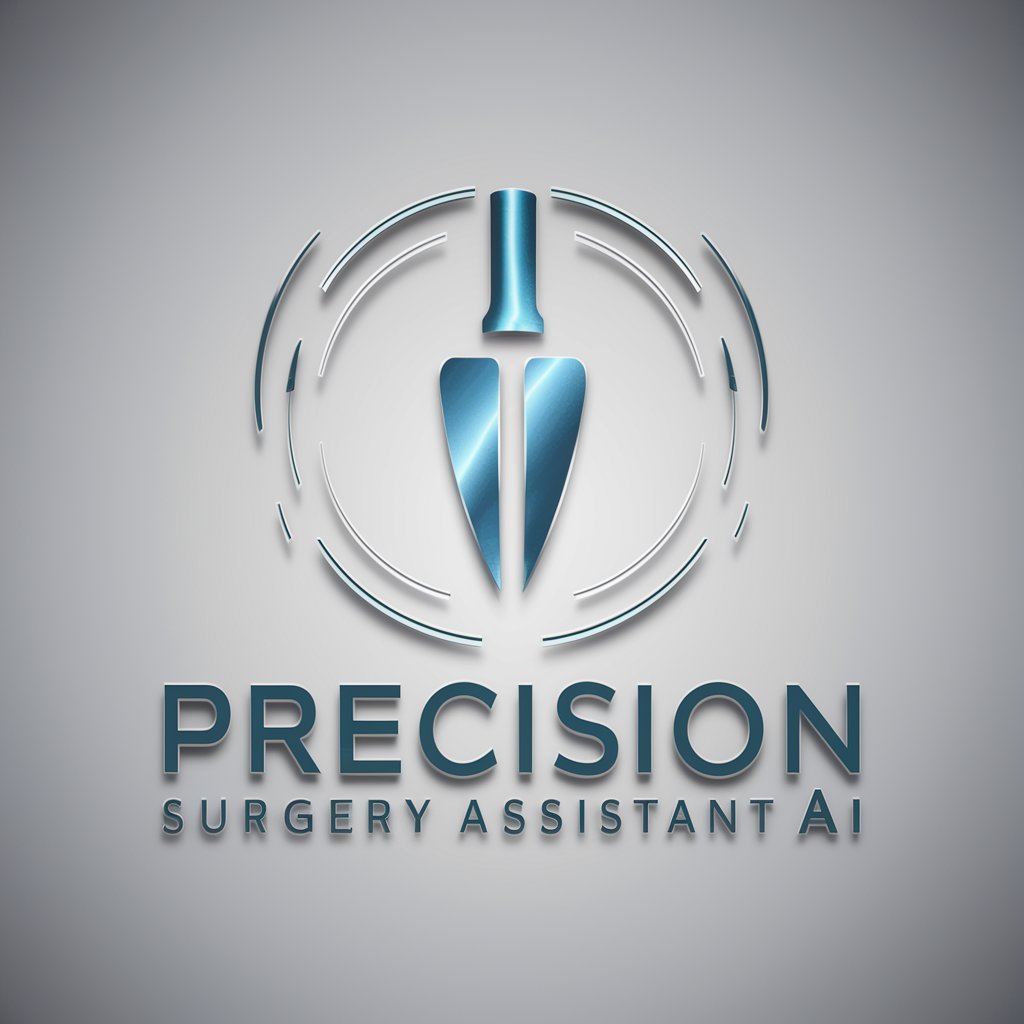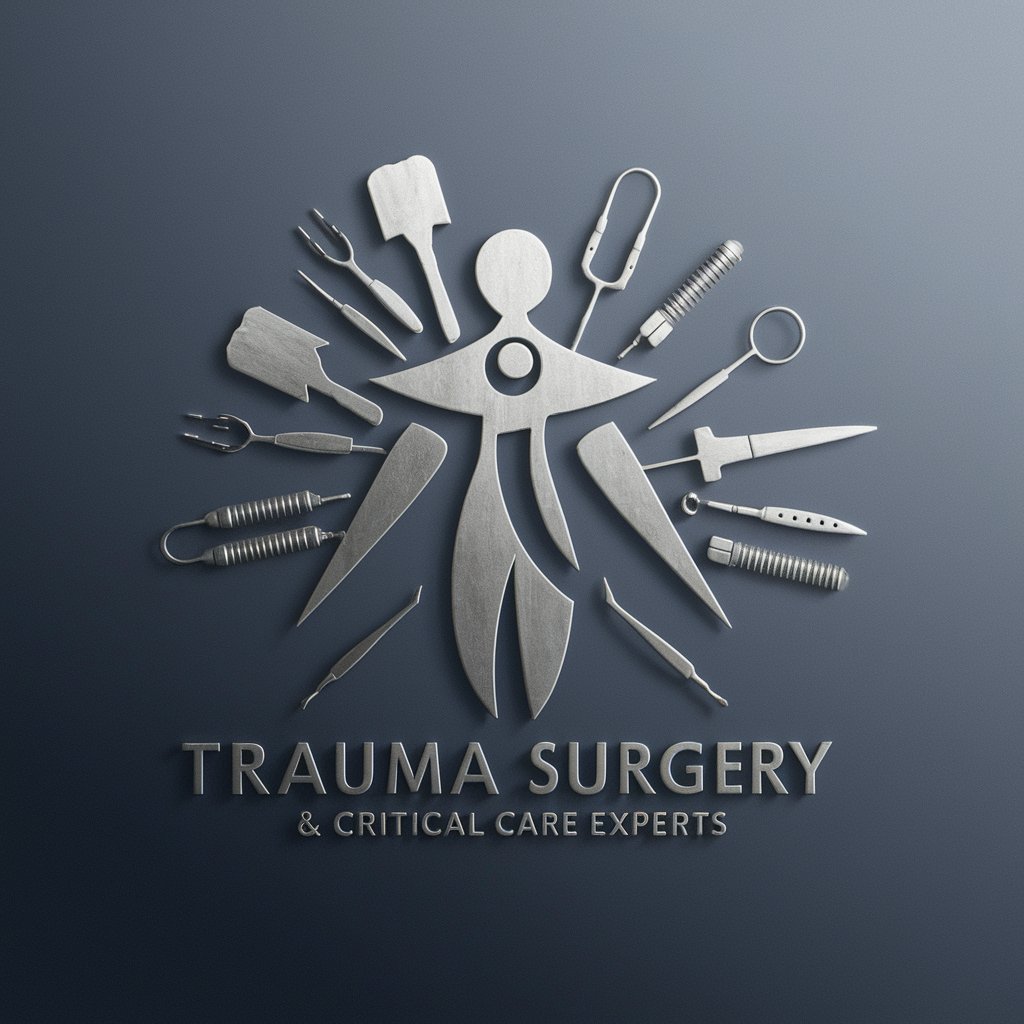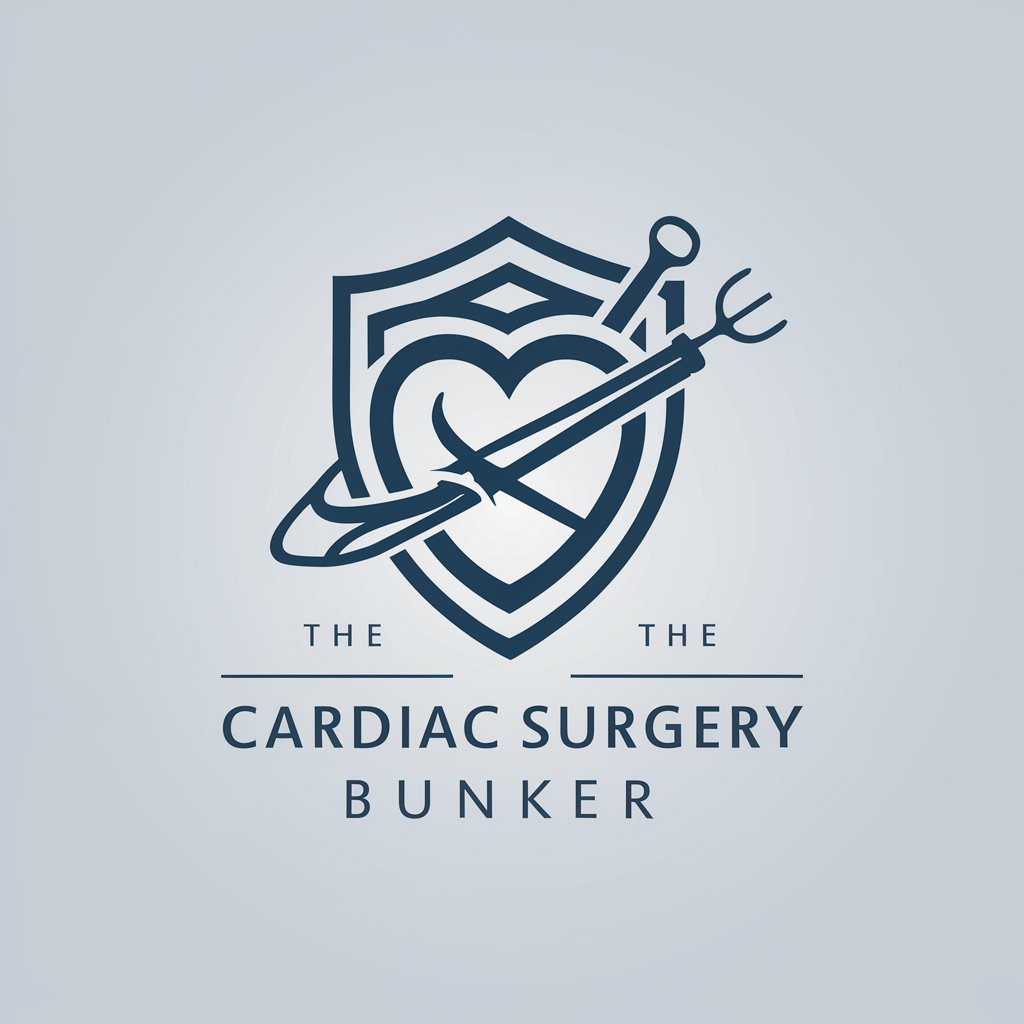
Surgery - Surgery Information Resource
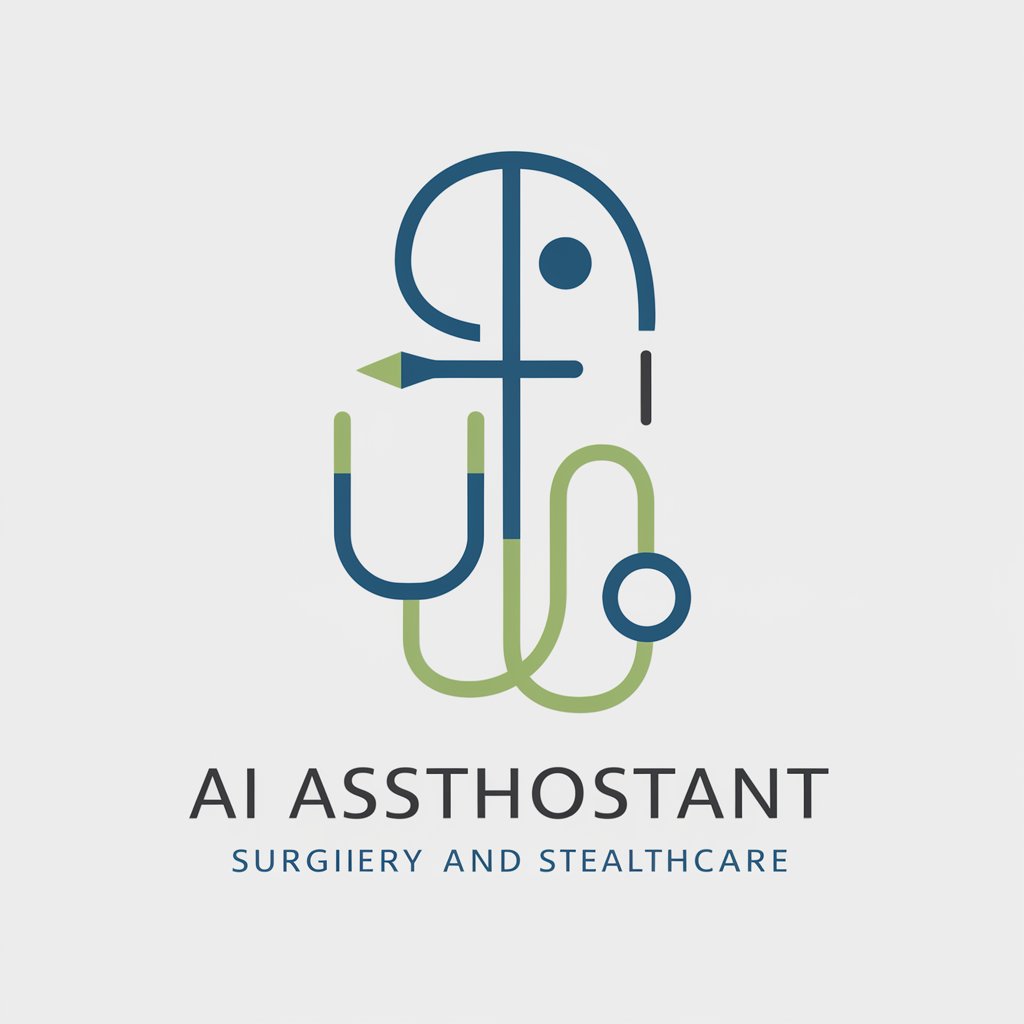
Welcome! I'm here to help you understand surgical procedures and healthcare.
Empowering Surgical Knowledge with AI
Explain the differences between open and laparoscopic surgery.
Describe the steps involved in a coronary artery bypass graft.
What are the common complications following abdominal surgery?
How does robotic-assisted surgery improve patient outcomes?
Get Embed Code
Overview of Surgery GPT
Surgery GPT is designed to serve as an advanced digital assistant specialized in the domain of surgery and healthcare. Its core purpose is to provide detailed, accurate insights into various surgical procedures, medical specialties, and aspects of healthcare. This GPT model is equipped to discuss complex surgical topics, including different techniques, tools used in surgery, and post-operative care, in a manner that is both informative and accessible to a broad audience. It's intended to enhance understanding of surgical practices without offering personalized medical advice, thereby encouraging users to seek professional consultation for their specific health concerns. Examples of its utility include explaining the steps of complex surgical procedures, offering insights into the latest surgical technologies and practices, and providing information on pre- and post-operative care. Powered by ChatGPT-4o。

Main Functions of Surgery GPT
Educational Insights
Example
Explaining the procedure, risks, and recovery process of a coronary artery bypass graft.
Scenario
A student or medical professional seeking to understand the intricacies of specific surgical procedures for educational purposes.
Latest Surgical Technologies
Example
Providing updates on minimally invasive surgical techniques and robotic surgery advancements.
Scenario
Surgeons and healthcare providers looking to stay abreast of the latest developments in surgical technology.
Post-operative Care Information
Example
Guidelines on care and rehabilitation after knee replacement surgery.
Scenario
Patients or caregivers seeking information on what to expect and how to care for someone after a surgical procedure.
Medical Specialty Insights
Example
Comparative analysis of surgical specialties, such as cardiothoracic surgery versus orthopedic surgery.
Scenario
Medical students or professionals deciding on a specialty or looking to deepen their knowledge in a specific area of surgery.
Ideal Users of Surgery GPT Services
Medical Students and Educators
This group benefits from detailed explanations and updates on surgical procedures and healthcare topics, aiding in education and professional development.
Healthcare Professionals
Surgeons, nurses, and other medical staff can use Surgery GPT to stay informed about the latest surgical techniques, technologies, and best practices in patient care.
Patients and Caregivers
Individuals seeking to understand more about their own or a loved one's surgical procedure and care requirements benefit from accessible, reliable information on what to expect before, during, and after surgery.
Healthcare Policy Makers and Administrators
This group can leverage insights into surgical outcomes, technologies, and care practices to inform policy and administrative decisions in healthcare settings.

How to Use Surgery
Start Your Experience
Begin by visiting yeschat.ai to access a free trial of Surgery without the need for logging in or subscribing to ChatGPT Plus.
Identify Your Needs
Determine the specific surgical procedure or healthcare topic you need information on. This could range from general surgery information to detailed explanations of complex procedures.
Engage with Surgery
Input your question or topic of interest directly into the chat interface. Be as specific as possible to receive the most accurate and detailed information.
Review the Information
Carefully read the provided information. Surgery offers in-depth insights into surgical procedures, medical specialties, and post-operative care.
Follow Up as Needed
If you have further questions or need clarification on any points, don’t hesitate to ask follow-up questions for more detailed explanations.
Try other advanced and practical GPTs
Rédacteur Mayotte Recrute
Empowering Recruitment with AI

Chatty
Empathetic AI for Support and Insights

Gomc
Empowering your marketing with AI
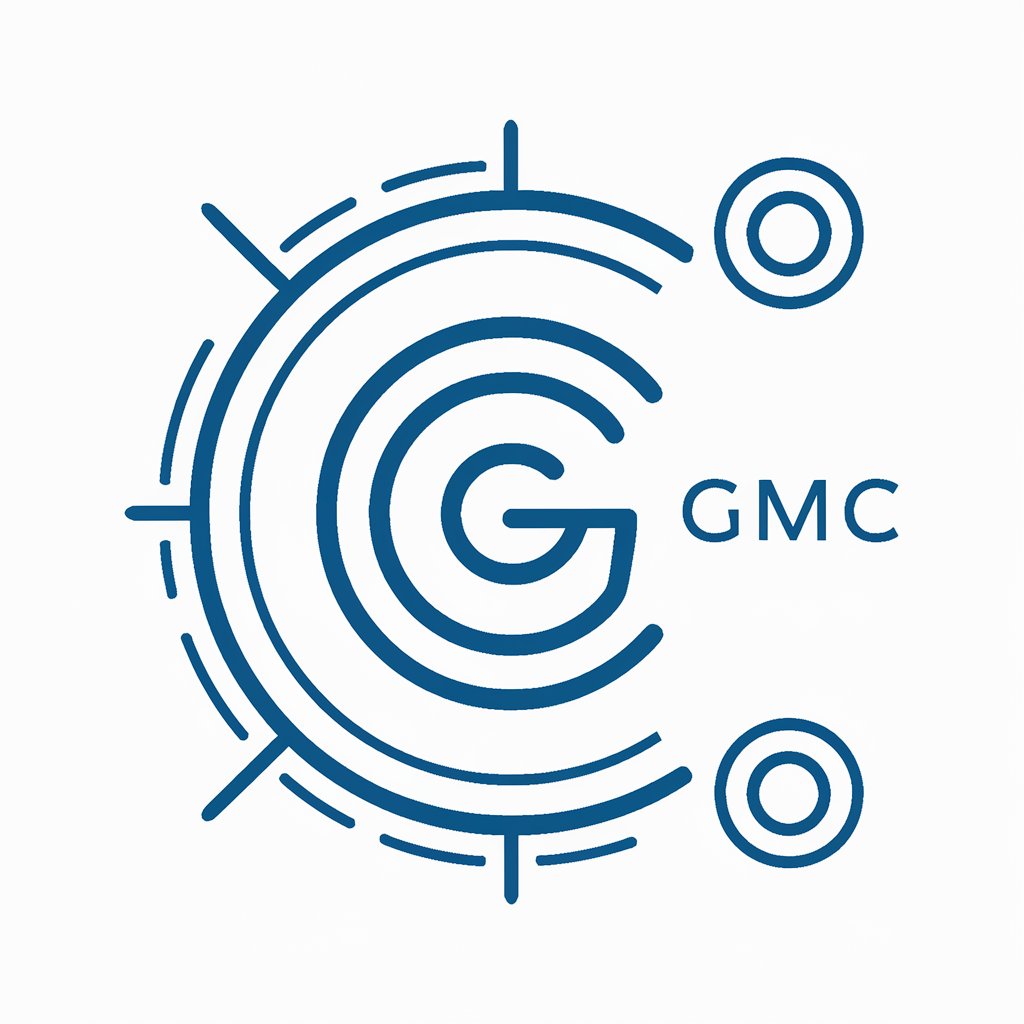
Eye
Bringing visuals to life with AI.

Glitchfix Listing Maker
Craft Perfect Listings with AI

VIREBeXP
Empowering Real Estate Decisions with AI

Der weihnachtliche Textzauberer
Transform texts into festive delights with AI

Toothache
Empowering your dental health with AI

Rizzatron
AI-Powered Relationship Wizard

Text MUD Game: The Time Traveler
Embark on Historical Adventures with AI

Analisis ProActivo
Empower Your Research with AI-Powered Analysis

Lottery
Unlocking the Secrets of Lotteries with AI

Frequently Asked Questions about Surgery
What types of surgical procedures can Surgery provide information on?
Surgery can offer detailed insights on a wide range of surgical procedures, from general surgeries like appendectomies to specialized procedures such as cardiac bypass surgery or minimally invasive robotic surgeries.
Can Surgery provide guidance on post-operative care?
Yes, Surgery can provide comprehensive information on post-operative care, including wound care, pain management, physical therapy, and guidelines for recovery to ensure the best outcomes.
How does Surgery stay updated with the latest in medical and surgical advancements?
Surgery is built on current medical standards and knowledge, incorporating the latest research and clinical guidelines to provide information that is both accurate and up-to-date.
Is Surgery a substitute for professional medical advice?
While Surgery provides detailed information on surgical procedures and healthcare, it is not a substitute for professional medical advice. It is designed to supplement understanding and encourage informed discussions with healthcare providers.
Can Surgery assist in academic research or educational purposes?
Absolutely, Surgery is an excellent resource for students, educators, and researchers looking for detailed explanations of surgical techniques, medical terminology, and healthcare practices for academic writing or educational purposes.

